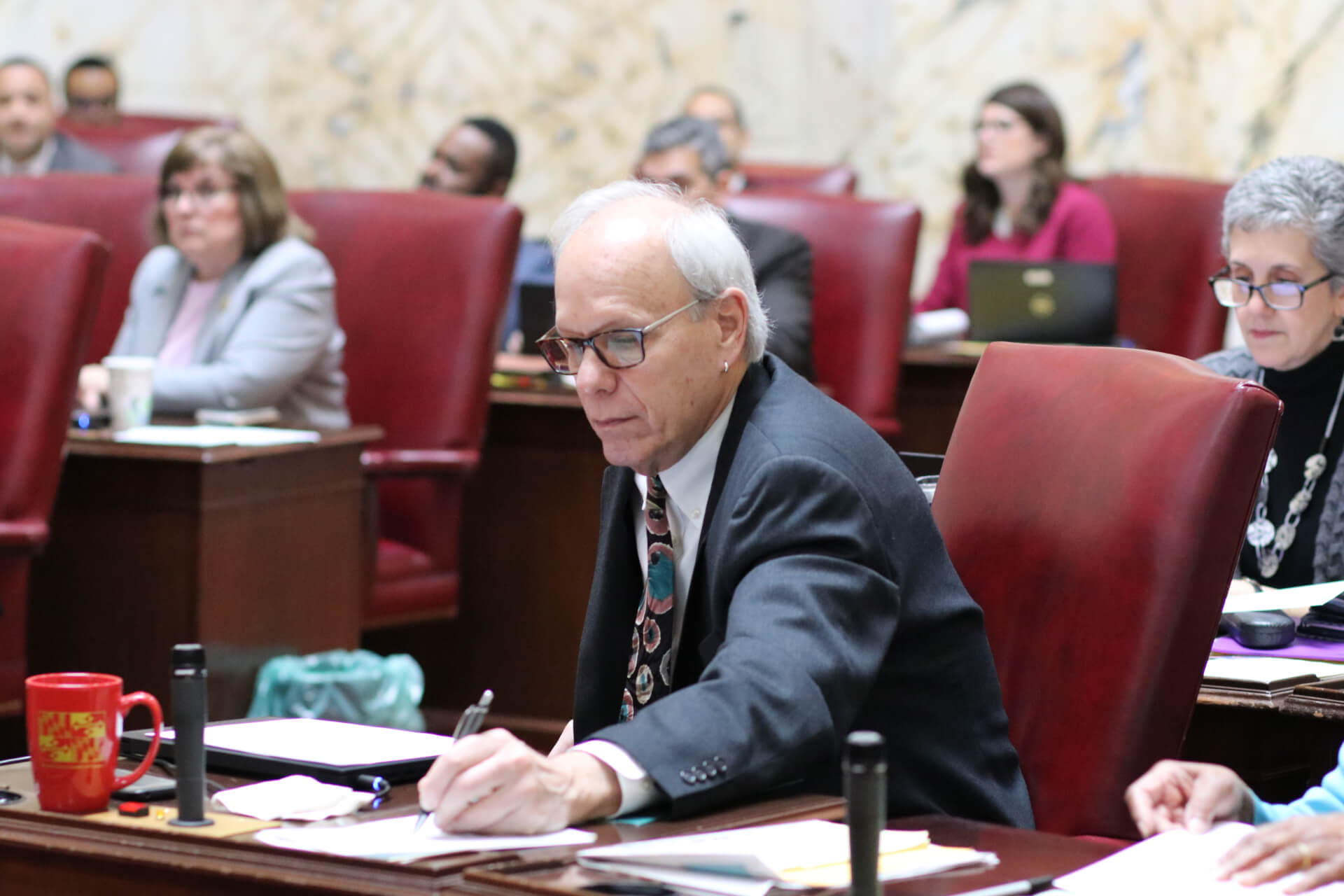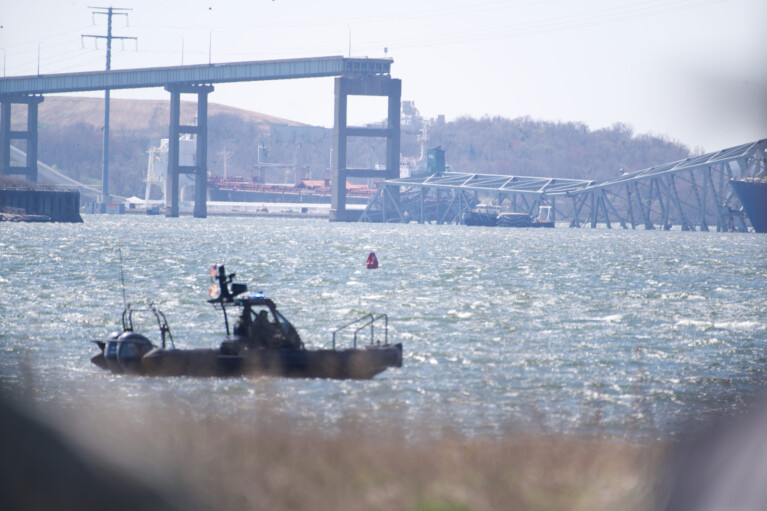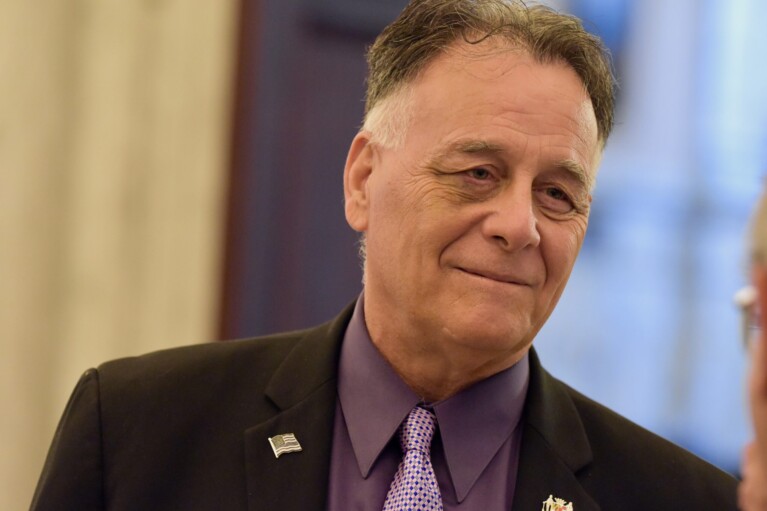Md. Senate Advances Far-Reaching Climate Bill

The Maryland Senate advanced a sweeping climate action bill on Wednesday after 10 Republican attempts to amend the legislation failed.
The Climate Solutions Now Act of 2021 aims to curtail Maryland’s global-warming pollution to a level that is 60% lower than it was in 2006 within the next decade. Current law requires the state to set detailed plans and strategies to decrease pollution by 40% from 2006 levels.
To achieve the more ambitious goal, the bill also proposes planting 5 million trees, electrifying the state government’s vehicle fleet, constructing more energy efficient schools, and other efforts. The measure would also create a just transition workgroup for displaced fossil fuel workers and would add new responsibilities for the state’s environmental justice commission.
But Republicans contended that a 60% pollution reduction goal was too ambitious, and Sen. Johnny Ray Salling (R-Baltimore County) proposed an amendment for 50% pollution reduction goal by 2030.
He referred to the Maryland Commission on Climate Change, which recommended the same figures in its annual report last year. The Maryland Department of the Environment also outlined strategies for the state to reduce emissions by 50% by 2030 in its recently released greenhouse gas reduction action plan.
“I would rather err on the side of caution — the governor had professionals that sat at the table …and they came up with a number that they think is more feasible for this state,” Sen. J.B. Jennings (R-Harford) said on the Senate floor Wednesday.
Sen. Paul Pinsky (D-Prince George’s), the lead sponsor of the bill, said the issue was how urgent legislators considered the climate crisis to be.
“Do we want to raise the bar or keep the bar at a place that may or may not get us to where we need to be?” Pinsky said. “If we do this right, we can achieve 60%, and we have to push the envelope, or children or grandchildren are going to pay for it.”
He reminded lawmakers that the bill includes a sunset provision in 2025, which means lawmakers can in four years assess whether the reduction targets are too fast or too slow and alter them accordingly.
Salling’s amendment failed on party lines in a 31-15 vote.
An amendment proposed by Sen. Jack Bailey (R-Calvert and St. Mary’s) to add paratransit exemptions to the bill was adopted as a friendly amendment. The battery life of zero-emission vehicles is not reliable enough to meet the demand of paratransit services currently, Bailey said.
Sen. Christopher R. West (R-Baltimore County) proposed requiring newly constructed school buildings that use funding from the Built to Learn Act funding, which provides $2.2 billion for school construction, to install rooftop solar panels.
“From 2030 on, we’re going to generate virtually all of our electricity through the use of solar,” West said. “And the question there is, where do the solar panels get placed. Do they get placed on farmland, or do they get placed on roofs?”
West contended that Maryland State Fairgrounds was able to install solar panels with no up-front costs, and the same could happen for school buildings.
Sen. Jim Rosapepe (D-Anne Arundel and Prince George’s), who has previously sponsored school-construction bills, supported West’s amendment, opining that it moves the bill closer to fighting climate change.
But Pinsky said it was too prescriptive and would force all local school systems to take the solar option to reach net-zero energy requirements when there are also geothermal and energy efficiency options that they could consider as well.
West’s amendment failed in a 31-15 vote, with Rosapepe voting in favor of the amendment and Sen. Mary Beth Carozza (R-Lower Shore) opposing it.
To help fund the bill’s far-reaching proposals, the Climate Solutions Now Act of 2021 would take up to $20 million from the Strategic Energy Investment Fund each year to help pay for replacing the state fleet with electric cars and for school buildings to become carbon neutral or solar-ready. For planting trees, $15 million would be taken from the Bay Restoration Fund annually and $1.25 million from the Chesapeake Bay Trust Fund.
But Republicans were largely concerned about the bill’s mandate to transfer $15 million annually from the Bay Restoration Fund, which they argued was mostly used for local sewer projects in rural parts of the state. All five amendments that offered alternative funding strategies failed along mostly party-lines.
After hearing 11 Republican amendments, only one of which adopted, the Senate advanced the Climate Solutions Now Act of 2021. The House Environment Subcommittee continued discussing the House cross-file of the bill Wednesday afternoon.




 Creative Commons Attribution
Creative Commons Attribution